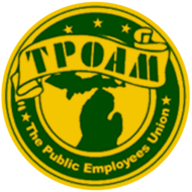By Ed Jacques, LEJ Editor
This case was a contract interpretation dispute arising as a result of a change in work schedule. POAM contended that the Employer violated the Collective Bargaining Agreement when it changed the Grievants’ work schedules without their agreement. The Administration countered that a past practice had existed whereby schedules have been changed in order to allow an officer to attend training without payment of overtime.
Three police officers’ schedules were changed so that they could attend training. The training was scheduled on their day off and, therefore, the officers in question were entitled to overtime pay to attend. The officers informed the Chief that they did not agree to any schedule change before attending the training, but had no objections to attending the subject training. The officers in question had attended training previously after their schedule had been posted but those were situations where they had agreed to a change in their work schedule. Overtime pay had been issued previously to officers that attended training on their days off.
The Flat Rock Police Chief is a 30-year member of the department and stated that it was a common occurrence to change a work schedule in order to avoid the payment of overtime for the purpose of attending the training. Both Parties stipulated that schedules had been changed once posted. The Union contended that if no grievance was filed, the affected Officer agreed to the change. The Employer asserted that it has changed schedules in the past without first obtaining agreement from the affected parties.
The Employer argued that, in most cases, it does not become aware of training opportunities within 60 days of the training date and this almost always requires a change in an employee’s schedule or days off after the establishment of an employee’s shift. The Employer contended that a past practice existed whereby it may alter an officer’s schedule to facilitate training to avoid the payment of overtime. They further argued that the past practice amounts to an amendment of the contract language. The Employer also argued that even if a violation of the Agreement is found, payment of overtime should be denied because the Grievants did not work in excess of 84 hours during the course of the pay period.
POAM denied a past practice existed as described by the Employer and stated:
The true practice is most employees have been able to be accommodated with schedule changes by the department. Once one party notifies the other party of its intent to enforce a language, that practice is nonexistent.
In this case, the Parties are bound by the four corners of the Contract and the Union requested that the Grievants be paid the overtime rate of time and one-half for each day they attended training on what would have been their normal day off.
The aggrieved contract language is clear and unambiguous. Past practice is often utilized as a means to clarify ambiguous language and in some cases used to modify or amend clear and unambiguous contract language.
Both Parties stipulated that work schedules have been changed to allow officers to attend training without payment of overtime. But, in all of those situations, none of the officers complained about the schedule change. In this case, the officers informed the Police Chief that they did not agree to the work schedule change. The complaint was made before the officers were sent to training, making the facts in this case different from the earlier situations. The following provisions of the Agreement were referenced:
ARTICLE XXX
SHIFTS
30.1: Shift Bids.A. Shifts will be posted by the Chief of Police every three months. Shifts to be worked, including days off, will be posted every sixty days prior to the actual starting date. Shifts and consecutive days off (officers must be allowed at least two consecutive days off per week, unless the City and Union mutually agree to a different pick) will be selected by seniority by officers who have successfully completed their probationary period. Once the bidding process is completed, shifts and/or days off will not be changed except by mutual agreements between the Union and the Employer.
APPENDIX B 12 HOUR SHIFTS
9. There will be no changes allowed in the schedule once the schedule is put in place without both the City and the affected employee agreeing to the change. Shifts will not be split without the employee’s approval.
Arbitrator Joseph P. Girolamo granted the grievance and awarded the officers time and one-half for the days they were assigned to attend training when they had objected to their posted schedule being changed.
The arbitration case was presented by POAM Business Agent, Kenneth E. Grabowski.

Leave a Reply